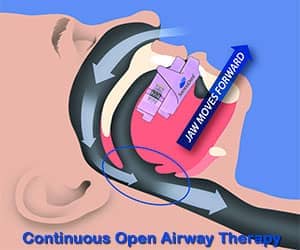Continuous positive airway pressure
Table of Contents
Table of Contents
Are you a remote worker struggling with sleep disorders? The continuous positive airway pressure therapy (CPAP) might just be the solution you need to improve your productivity, focus, and overall health.
Pain Points of Continuous Positive Airway Pressure Therapy and Sleep Disorders in Remote Workers
Remote work has become an attractive option for many people due to its flexibility and convenience. However, remote workers often face unique challenges that can affect their sleep quality, such as irregular schedules, lack of physical activity, and more. Poor sleep quality, in turn, can lead to various health issues such as high blood pressure, diabetes, and heart problems, which can ultimately impact productivity and work performance.
Answering the Target of Continuous Positive Airway Pressure Therapy and Sleep Disorders in Remote Workers
Continuous positive airway pressure therapy is a highly effective treatment for sleep apnea, a common sleep disorder characterized by breathing cessation throughout the night. CPAP works by increasing positive air pressure in the throat, preventing airway blockage that leads to apneas and snoring. This therapy can significantly improve sleep quality, reduce fatigue and headaches, and lower the risk of serious health conditions.
Summary of Continuous Positive Airway Pressure Therapy and Sleep Disorders in Remote Workers
As a remote worker, you know how important good sleep is for productivity and overall wellness. Sleep disorders such as sleep apnea can affect your physical and mental health, leading to a poor quality of life. CPAP therapy is a viable solution for sleep apnea, improving your sleep quality and reducing the risk of further health complications. To learn more about the benefits of CPAP therapy for remote workers, keep reading.
The Importance of CPAP Therapy for Remote Workers and Sleep Disorders
As a remote worker, I used to suffer from sleep apnea and struggled with consistent sleep patterns. I often felt fatigued and struggled with concentration during the day. After researching my options, I opted for CPAP therapy, and the results were life-changing. I slept better, woke up refreshed, and found it easier to concentrate on work and personal projects throughout the day. The best part is that the therapy is easy to use and can be done from the comfort of your home.
The adaptive technology of the CPAP devices enables you to customize the treatment as per your specific needs and sleep patterns. The ease of use and flexibility of this therapy make it highly suitable for remote workers. By using CPAP therapy, you can improve your sleep, stay alert, and enhance your overall productivity.
Understanding the Benefits of CPAP Therapy for Remote Workers and Sleep Disorders
CPAP therapy provides various benefits to remote workers suffering from sleep disorders such as sleep apnea. The therapy not only promotes better sleep but also helps reduce snoring and daytime sleepiness. CPAP therapy can also lower the risk of heart diseases, stroke, and high blood pressure. With proper usage, CPAP therapy can improve the quality of life for remote workers, help them stay focused, and increase their productivity.
The Working Mechanism of CPAP Therapy for Sleep Disorders in Remote Workers
The working mechanism of CPAP therapy is quite simple. The device consists of a mask that covers the nose or nose and mouth or the full face. The mask is connected to a machine that blows air into the throat at a pressure that’s just enough to keep the airway open.
Continuous Positive Airway Pressure Therapy and Sleep Disorders in Remote Workers: Frequently Asked Questions
Q: How long will it take to see the results of CPAP therapy?
A: The results of CPAP therapy can be observed almost immediately as you experience better sleep on the first night of therapy. However, the lasting benefits may require consistent use of the device for 3-6 months.
Q: Is it convenient to use CPAP therapy for remote workers?
A: Yes, CPAP therapy is very convenient for remote workers as the device is portable and can be used anywhere with a power source. You can travel with the device, and it does not require any special installation or maintenance.
Q: Can CPAP therapy cure sleep apnea?
A: While CPAP therapy cannot cure sleep apnea, it can significantly reduce its symptoms and the risk of further health complications. The therapy needs to be utilized consistently for lasting benefits.
Q: What types of sleep apnea can CPAP therapy treat?
A: CPAP therapy can treat all types of sleep apnea, including obstructive sleep apnea, central sleep apnea, and mixed sleep apnea.
Conclusion of Continuous Positive Airway Pressure Therapy and Sleep Disorders in Remote Workers
Rather than letting sleep disorders affect your productivity and overall health, consider using CPAP therapy as a viable solution for stable sleep patterns. As a remote worker, CPAP therapy has enhanced my productivity and quality of life, enabling me to focus on my personal and professional endeavors more efficiently. By prioritizing your sleep quality, you can improve your overall well-being and become more productive in all aspects of life.
Gallery
Continuous Positive Airway Pressure | Treating Sleep Apnea - YouTube

Photo Credit by: bing.com / airway positive pressure continuous
What Is Continuous Positive Airway Pressure Therapy? | GenesisCare

Photo Credit by: bing.com / continuous airway positive pressure
Continuous Positive Airway Pressure Therapy | Nursing Information

Photo Credit by: bing.com / pressure positive airway continuous education health nursing information therapy choose board
Mechanism Of Action Of Continuous Positive Airway Pressure Therapy IV

Photo Credit by: bing.com / airway mechanism
Continuous Positive Airway Pressure (CPAP) Devices Market

Photo Credit by: bing.com / pressure positive airway continuous cpap devices types market machine breathing bipap different insights premium press release



